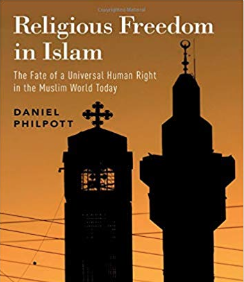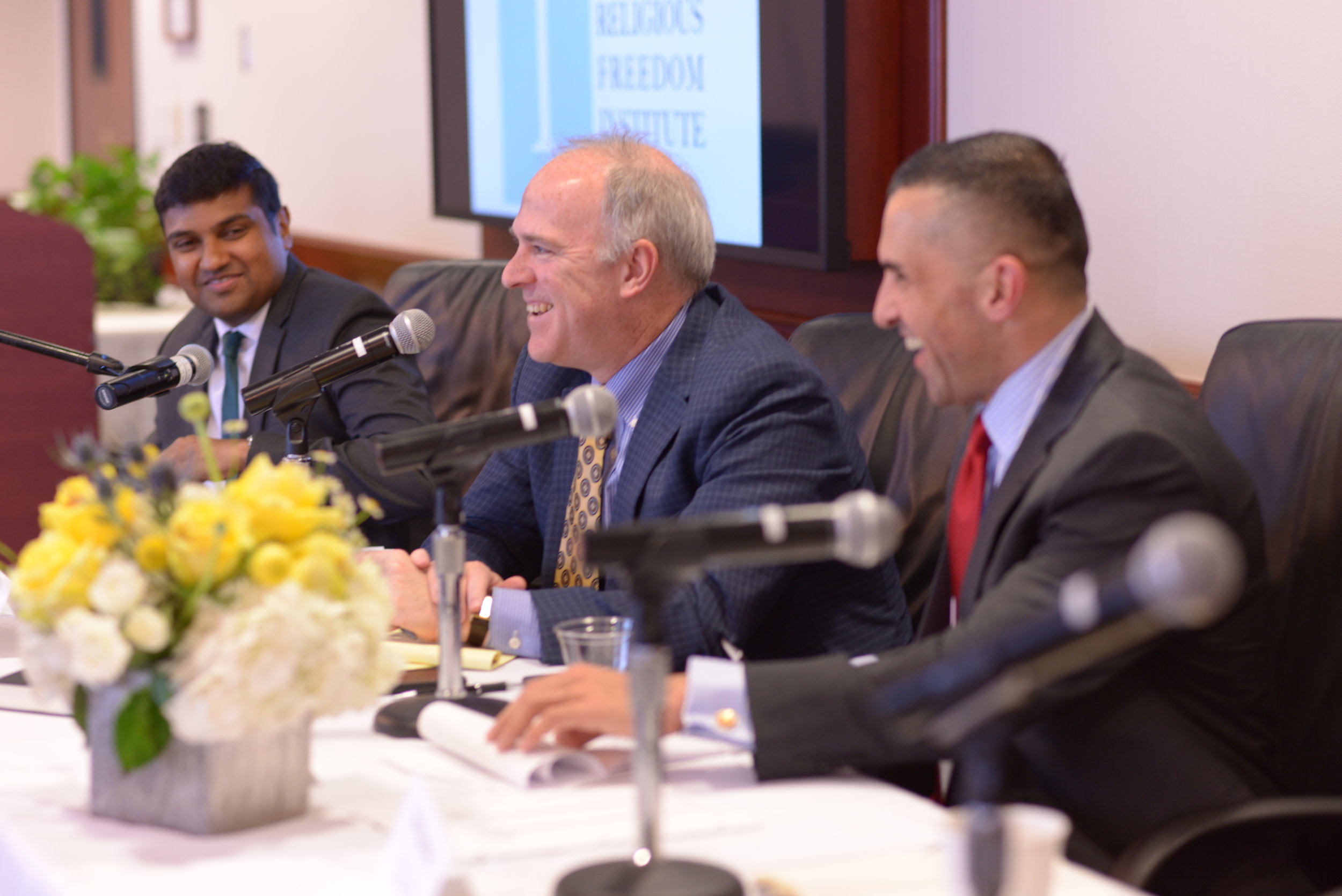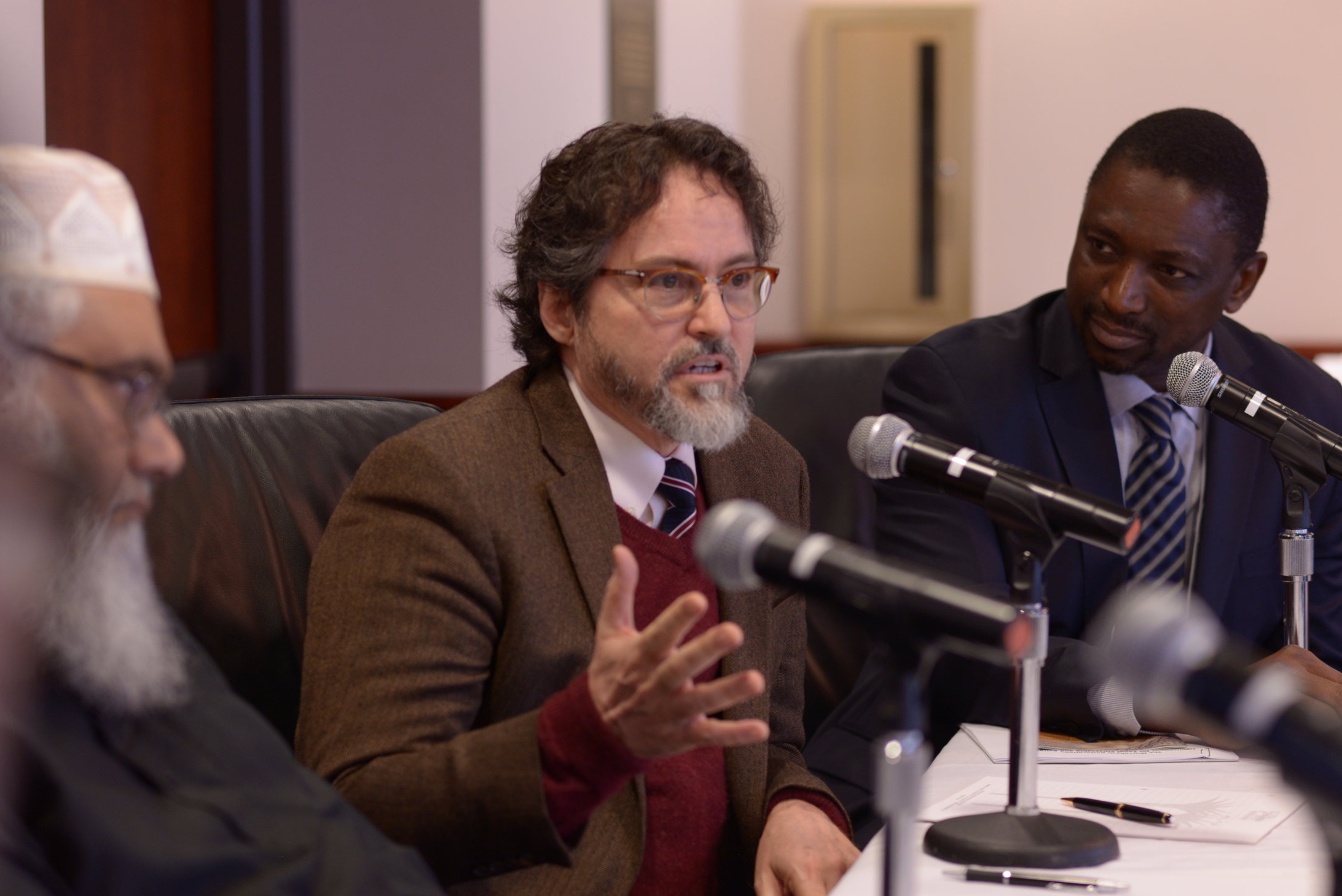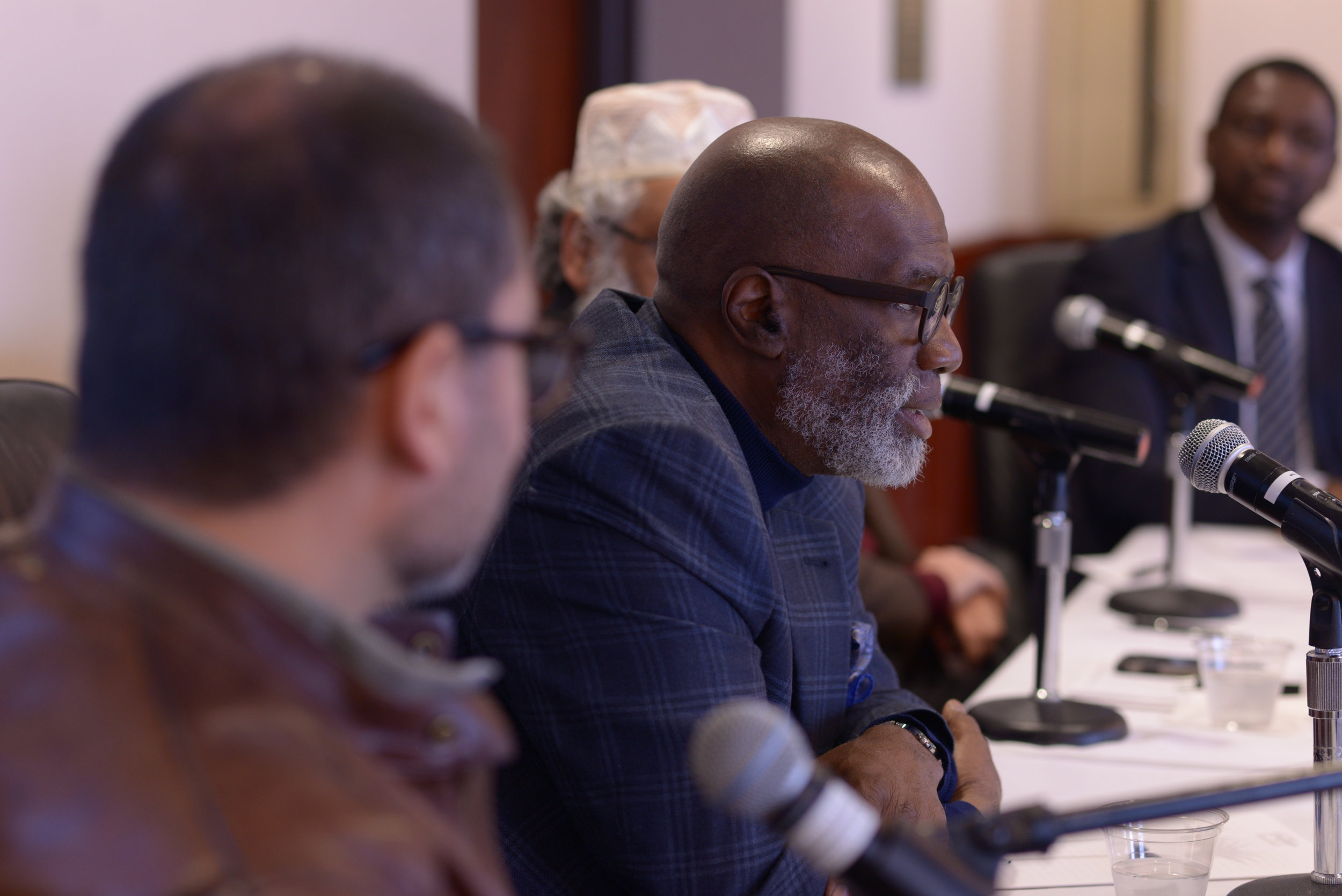The truth about Islam is highly contested, and societies shaped by it have varied widely. For instance, there is the image of the harmonious, pluralistic societies of Spain and the Ottoman Empire in which religious minorities are said to have enjoyed autonomy, and greatly flourished. Then, there is the image of cruel sultanates ruling over lands in which minority communities converted at the point of a sword, or were sometimes wiped out completely. And today we are faced with images of ISIS enslaving Yazidis, marking Christian homes, and engaging in mass killings. Such acts of terrorism, and the corresponding media coverage, have greatly shaped perceptions of Islam in the modern world. In light of these competing historical and contemporary narratives, a critical question remains before us. Does Islam support religious freedom, or, if faithfully practiced, does it inevitably lead to unacceptable restrictions on that freedom? In other words, are Islam and religious freedom ultimately compatible?
On March 4, a group of leading Muslim and Christian scholars convened at Pepperdine University for three days of intensive discussion on this complex subject. The private consultation culminated in a public event, co-sponsored by the Religious Freedom Institute (RFI), Pepperdine University’s Center for Faith and Learning, Bayan Claremont, Pepperdine School of Law, and Baylor University’s Institute for Studies of Religion
PANEL 1: SEVEN SEEDS OF RELIGIOUS FREEDOM IN ISLAM – DANIEL PHILPOTT
Dr. Daniel Philpott, Notre Dame University Professor and RFI Senior Associate Scholar, opened the public event with points drawn from his new book, Religious Freedom In Islam: The Fate of a Universal Human Right in the Muslim World Today.
Religious Freedom in Islam: The Fate of a Universal Human Right in the Muslim World Today, by Dr. Daniel Philpott, Professor of Political Science at the University of Notre Dame and Senior Associate Scholar of the Religious Freedom Institute.
Religious freedom, Philpott noted, is a criterion more robust than tolerance in determining the peacefulness of a religion. While tolerance is often temporary, religious freedom is an enduring principle of justice, premised upon respecting the dignity of the human person and his search for eternal answers. Denial of religious freedom is correlated with religious terrorism. Conversely, where religious freedom is cultivated, we tend to find democracy, economic development, and women’s advancement.
Because during the current historical period the Muslim-majority world “disproportionately” struggles in these areas, a culture war has been intensifying over the nature of Islam itself. Critical voices, Philpott explained, believe Islam to be “hardwired for violence,” while more favorable opinions hold that Islam is “hospitable to human rights.”
The reality, Philpott continued, is far more complex: Islam has a “mottled record.” While it is alarming that 78 percent of Muslim-majority states maintain high levels of religious restrictions, there is cause for hope. Despite their many differences, Philpott cautiously opined that Muslims could draw on lessons from the Catholic Church’s path from formal resistance to religious freedom, to its eventual embrace in Dignitatis Humanae. The critical point, as Philpott argues, is that Islam possesses within itself the resources necessary to affirm religious freedom. The matter at hand, then, is how best to bring those resources to bear, first in Muslim-majority countries, but in other regions as well.
Dr. Daniel Philpott, through an examination of Islam, identifies “seeds of freedom” woven into the religion itself.
Through an examination of Islam, Philpott identified “seeds of freedom” woven into the religion itself. These included: the interpretation of pro-plurality verses found within the Quran, the life of the Prophet Mohammed, historical examples of toleration, civil liberties, the rule of law and separation of church and state within Islamic polities, and the existence of contemporary Muslim advocates who oppose apostasy laws and other modes of repression. Philpott persuasively contended that these seeds, when further cultivated and nourished, have the capacity to blossom into full-grown freedoms.
At the conclusion of Philpott’s presentation, panelists Dr. Tarek Elgawhary, Hamid Khan, and Jihad Turk joined the speaker on stage to share their perspectives.
Elgawhary, a scholar and host of the podcast “Making Sense of Islam,” opened by noting that the “modern Muslim state is still evolving” in the wake of the demise of the Caliphate. At that time, Islam was not only a religion, but an empire. Since its origins, Islam has commanded the “protection of religion.” Nevertheless, Elgawhary pointed out potential for ambiguity. Over time, scholars have questioned whether this foundational principle means the specific protection of Islam or, more broadly, religion in general.
For Khan — a scholar, Deputy Director of the Rule of Law Collaborative at the University of South Carolina, and a widely-sought Islamic law consultant — questioning the place of religious freedom within the Islamic tradition seems tautological. “There is not only an Islamic case for pluralism,” Khan argued, “it is at the heart of what Islam began, what it was incubated in, and how it should continue.”
For centuries, Khan pointed out, Muslim scholars have warned against augmenting the power of the state. State-based violence and poor governance, plaguing many Muslim-majority nations today, is not directly linked to Islam, he opined. Rather, it is linked to the poor mediation between the role of religion and the authority of the state.
Expanding upon this point, Turk, the founder of Bayan Claremont Islamic Graduate School, raised the issue of nationalism in explaining the Muslim world’s “bloody borders.” It is this phenomenon, he suggested, that is to blame, not Islam itself. Using examples from Northern Ireland, Myanmar, and Turkey, Turk commented that religion — Catholicism, Buddhism, or Islam — can be wielded as a tool of ultra-nationalists. This is especially the case during the historical shifts from empires to nation-states, and in the presence of competing cultural narratives.
“If the power of it is harnessed correctly,” Turk concluded, “religion, and Islam in particular, in these areas of conflict can be part of the solution.”
Philpott concluded the discussion by noting the importance of a country’s political theology, which he defined as the “concepts of how the state ought to relate to religion.” In this light, it is not so much the kind of state, or the kind of religion. Instead reaffirming what Khan had noted earlier, it is about how the two are mediated.
Shaykh Hamza Yusuf, president and senior faculty member of Zaytuna College in Berkeley, urges the Muslim world to open its eyes to compelling arguments, revealed both through the created world and the written word, for the compatibility of Islam and Religious Freedom.
After a break, Zaytuna College president, writer, and renowned scholar of Islam, Shaykh Hamza Yusuf, gave the keynote address. He urged the Muslim world to open its eyes to compelling arguments, revealed both through the created world and the written word, for the compatibility of Islam and religious freedom.
“Religious diversity is clearly part of the divine intention,” Yusuf began, noting the enduring human desires for freedom and autonomy.
Citing numerous passages from the Quran, Yusuf pointed out that the concept of coercion is repeatedly condemned. “Had God wanted, He would have made you all one group,” he translated from Arabic, “but this is a test, so vie with one another in virtue.” That vying process – through persuasion rather than violence – is the hallmark of a civilized society, Yusuf remarked.
PANEL 2: AN ISLAMIC CASE FOR RELIGIOUS FREEDOM – SHAYKH HAMZA YUSUF
In the following panel, Cato Institute senior fellow, Mustafa Akyol, affirmed Yusuf’s words. He agreed that “human rights and freedom are universal ideas which are rooted in our very sacred source, the Quran, and in the tradition.” Yet, in order for these rights to fully blossom, they must be cultivated.
Sherman Jackson, a scholar of Islam in the West and the King Faisal Chair in Islamic Thought and Culture at the University of Southern California, added an important dimension, raising the issue of religious freedom as a right and a responsibility. “Does the right to religious freedom give the right to conduct myself in very anti-societal ways in the name of religious freedom?” he posed to the audience.
Sherman Jackson, scholar of Islam in the West and the King Faisal Chair in Islamic Thought and Culture and the University of Southern California, raised the issue of religious freedom as a right and responsibility.
If so, Jackson cautioned, religious freedom can breed resentment among majority group members who feel that minority groups are seeking to opt out of society. At the same time, the very nature of religion implies “exclusion.” In other words, the existence of Muslims necessitates the reality of non-Muslims. It is vital, he urged, to allow “religious communities to sustain their identity as religious communities and learn…how to engage those categories of exclusion without seeing them as categories of oppression.”
Professor Koutoub Sano, Minister in the Office of the President and Diplomatic Advisor to the President of Guinea, closed the panel by echoing themes common throughout the event. He also noted that much of Islam’s legal literature was written during imperial times. In that epoch, Islam constituted the law and religion of the land. Today’s reality is not so monolithic. Encouraging a critical examination and study of the roots of the faith, Sano reminded attendees that Islam, from the beginning, has demanded that all persons, Muslim and non-Muslim, must be treated equally, respecting religious freedom for all.
Concluding the event, there was a recognition of the need for education dedicated to fostering a genuine understanding of the core teachings of Islam among a new generation of Muslim leaders, thus equipping them to live out their faith and advance religious freedom in their communities.
THE RFI BLOG

Is Egypt’s Government Trying To Take Over Christianity’s Most Important Monastery?

Does Southeast Asia Lead the World in Human Flourishing?

RFI Leads Training Session on Religious Freedom Law and Policy for U.S. Army War College

Oral Argument in Charter School Case Highlights Unconstitutional Motives Behind OK Attorney General’s Establishment Clause Claim

Largest Longitudinal Study of Human Flourishing Ever Shows Religion’s Importance
CORNERSTONE FORUM

Reaffirming Religious Freedom: Bridging U.S. Advocacy and Iraq’s Constitutional Framework

Political Polarization, Same-Sex Marriage and Religious Liberty

Bridging the Gap Between International Efforts and Local Realities: Advancing Religious Freedom in the MENA Region

Challenges to Religious Freedom in Iraq and the Critical Need for Action





